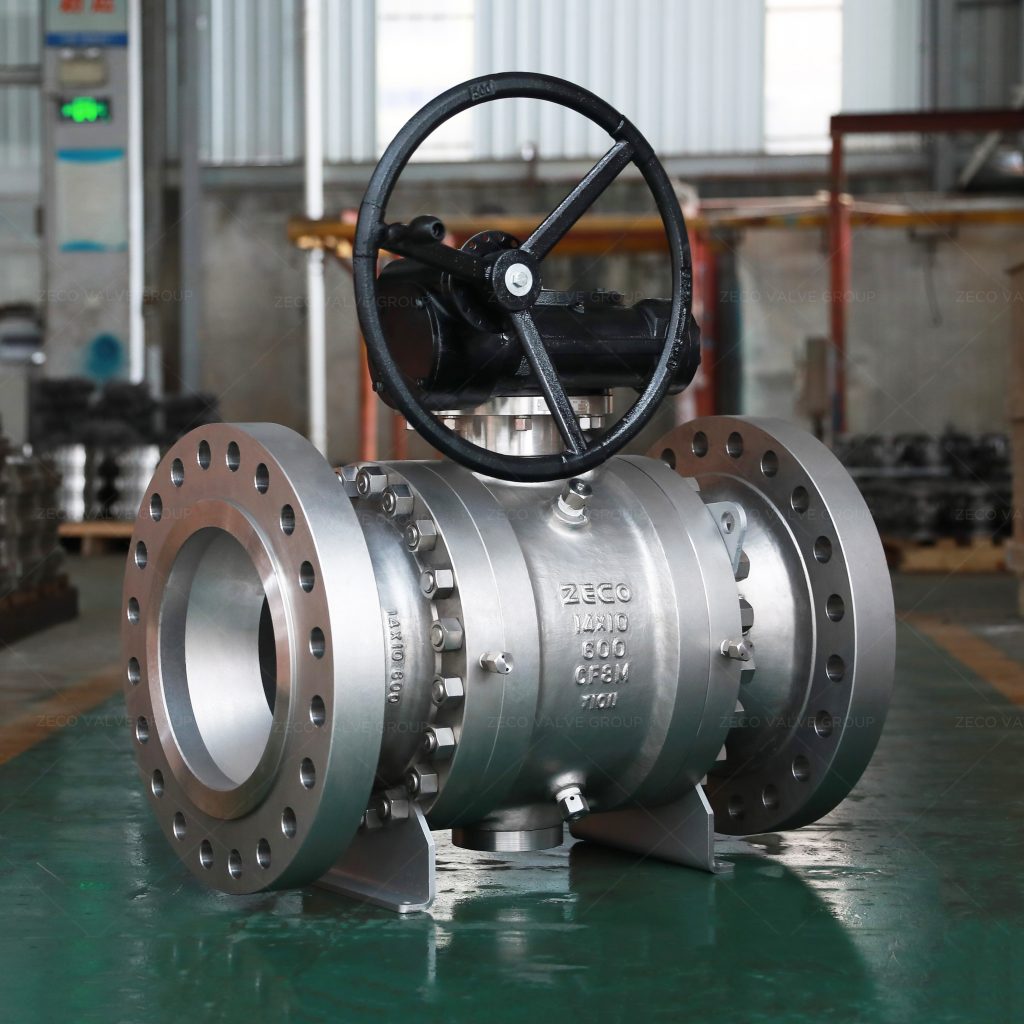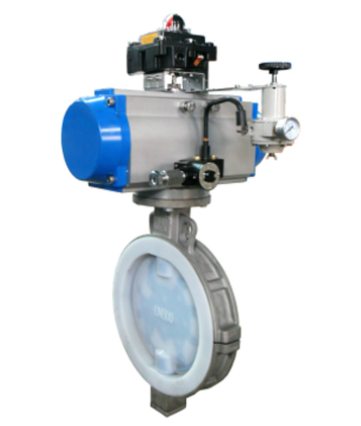1/2 brass ball valve
1/2 sweat ball valve
1/4 npt ball valve
Table of Contents
- API – American Petroleum Institute (Ball Valve Standard)
- What is a API 6D Ball Valve?
- API 6D Floating Ball Valve
- API 6D Trunnion Ball Valve
- Features of API 6D Trunnion Ball Valve
- API – American Petroleum Institute (Butterfly Valve Standard)
- Know about Butterfly Valve
- When is a Butterfly Valve Used?
- Several working conditions of the applicable butterfly valve
API – American Petroleum Institute (Ball Valve Standard)
API 6D Specification for pipeline valves (Ball, Gate, Plug and Check Valves)
API 6FA Specification for fire test for valves
API 607 Fire Test for soft seated quarter turn valves
API 598 Valve inspection and testing
API Q1 Specification for Quality programs for the Petroleum and Natural Gas Industry
What is a API 6D Ball Valve?
API 6D ball valves are designed for reliability and high-performance, and are an excellent choice for shutoff applications in the power, oil & gas and petrochemical industries. API 6D floating ball valve and API 6D trunnion mounted ball valves are available. Ball valve API 6D fully meet the design, manufacture, and testing of API 6D specifications.
ZECO Valve offers 2”-8″ API 6D floating ball valves built to meet the industry’s strictest specifications. Our products include ANSI Classes 150-1500, material grade WCB cast carbon steel and A105 forged steel.

API 6D Floating Ball Valve
API 6D FLOATING BALL VALVES for application in pipeline and piping systems for the Petroleum and Oil & Gas Industry.
| SIZE RANGE | 2” – 8″ |
| PRESSURE RANGE | 150 ANSI pressure class to 1500 ANSI pressure class |
| PORT SIZES | Two-piece full port design, Two-piece reduced port design |
| MATERIAL GRADES | WCB, A105N |
| TRIM MATERIALS | Ball: 316 Stainless Steel, and exotic alloys. Stem: 316 stainless steel for ANSI 150-300#, F51 Duplex for ANSI 600# |
| STANDARD SEAT MATERIAL | TFM 1600 |
| PACKING AND GASKET MATERIAL | Graphite |
| O-RING MATERIAL | HNBR 90 |
| END CONFIGURATIONS | Raised Face and RTJ |
| STANDARDS | Fire safe, CE certified, NACE certified |
API 6D Trunnion Ball Valve
ZECO Valve offers 2”-56″ API 6D trunnion ball valves built to meet the industry’s strictest specifications. Our products include ANSI Classes 150-2500, material grade WCB cast carbon steel and A105 forged steel.
| SIZE RANGE | 2″ – 56″ |
| PRESSURE RANGE | 150 ANSI pressure class to 2500 ANSI pressure class |
| TEMPERATURE RANGE | -196℃ – +500℃ |
| SEAT LEAKAGE RATE | ISO 5208 Rate D and A, ANSI / FCI 70-2 Class V and VI |
| END FLANGE CONNECTION | ASME B16.5(2″ to 24″), ASME B16.47 Series A (26″ and above) |
| BUTTWELD END | ASME B16.25 |
Features of API 6D Trunnion Ball Valve
- Valves designed according to API 6D
- All sizes available as full-or reduced bore
- Double block-bleed on request
- Fire safe to BS 6755, API 6FA and API 607
- Valve seats as single or double piston type
- Elastomeric and thermoplastic sealing materials to suit application
- Can be delivered with any type of actuator & accessories
- Secondary sealing by grease injection
- All sizes and classes available with metal-metal sealing
- Fully welded upon request
- Antistatic device and anti blow-out stem
- Special executions for cryogenic or high temp service
API – American Petroleum Institute (Butterfly Valve Standard)
API 609 Butterfly Valves: Double-flanged, Lug- and Wafer-type, and Butt-welding Ends, Ninth Edition
Category A—Manufacturer’s rated cold working pressure (CWP) butterfly valves, usually with a concentric disc and seat configuration. Sizes covered are NPS 2 to NPS 60 for valves having ASME Class 125 or Class 150 flange bolting patterns.
Category B—ASME class and pressure-temperature-rated butterfly valves that have an offset seat and either an eccentric or a concentric disc configuration. Sizes covered are listed below:
for lug and wafer, Class 150 and 300: NPS 2 to NPS 60;
for lug and wafer, Class 600: NPS 3 to NPS 60;
for double-flanged short and long pattern, Class 150, 300, and 600: NPS 3 to NPS 60;
for butt-welding ends, Class 150, 300 and 600: NPS 3 to 60;
Know about Butterfly Valve
Butterfly valves can convey and control media such as water, condensate, circulating water, sewage, seawater, air, gas, liquid natural gas, dry powder, slurry, pulp, and mixtures with suspended matter.
The butterfly valve is suitable for flow regulation. Since the pressure loss of the butterfly valve in the pipeline is relatively large, about three times that of the gate valve, therefore, when selecting the butterfly valve, the influence of pressure loss on the pipeline system should be fully considered, and the sturdiness of the butterfly plate to withstand the pressure of the pipeline medium when it is closed should also be considered. In addition, it is also necessary to consider the limits of the working temperature that the resilient valve seat material can withstand at high temperatures. Butterfly valve structure length and overall height are small, open and close fast, and has good fluid control characteristics, butterfly valve structure principle is most suitable for making large diameter valves. When the butterfly valve is required to be used for flow control, the most important thing is to select the correct size and type of butterfly valve so that it can work properly and effectively.

When is a Butterfly Valve Used?
There are many kinds of butterfly valves, there are fast cut-off and continuous adjustments. Mainly used for liquid, gas low-pressure large diameter pipeline. Suitable for pressure loss requirements are not high, the need for flow regulation, opening and closing requirements for fast occasions. Usually, the temperature is below 300℃, the pressure is below 40kg, the medium is generally used for water and gas, the medium requirements are not high, granular media can also be used.
Several working conditions of the applicable butterfly valve
1. Usually, in throttling, regulating control, and slurry media, short structure length and fast opening and closing speed (1/4 turn) are required. Low-pressure cut-off (small differential pressure), the butterfly valve is recommended.
2. In special working conditions throttling adjustment, or require strict sealing, or serious wear, low temperature (deep cold), and other working conditions when using butterfly valve, need to use special design metal seal with regulating device three eccentric or double eccentric special butterfly valve.
3. Butterfly valve can be used in double-position adjustment, indented channel, low noise, cavitation and cavitation, small leakage to the atmosphere, and abrasive media.
4. Soft seal eccentric butterfly valve is suitable for bi-directional opening and closing and adjustment of ventilation and dust removal pipeline, widely used in metallurgy, light industry, electric power, a petrochemical system of gas pipeline, and waterway, etc.
5. Midline butterfly valve is suitable for fresh water, sewage, seawater, saltwater, steam, natural gas, food, medicine, oil, and various acids and alkalis and other pipelines that require complete sealing, zero leakage in gas test, high life expectancy, and working temperature from -10℃ to 150℃.
5. Metal-to-metal face seal triple eccentric butterfly valve can be widely used in petroleum, petrochemical, chemical, metallurgy, electric power, and other fields, in addition to being used as a large pressure swing adsorption (PSA) gas separation device program control valve, and is a good alternative to gate valves and globe valves.
6. Metal-to-metal line seal double eccentric butterfly valve is suitable for urban heating, gas supply, water supply, and other gas, oil, acid, and alkali pipelines, as a regulating and throttling device.
7. Usually, in throttling, regulating control, and slurry media, the structure is required to be short in length and fast in opening and closing speed (1/4 turn). Low-pressure cut-off (small differential pressure), butterfly valve is recommended.
Tip: As a sealed butterfly valve, it was only after the emergence of synthetic rubber that it brought rapid development, so it is a new type of cut-off valve. In our country until the 1980s, butterfly valves mainly functioned as low-pressure valves with synthetic rubber seats, and by the 1990s, due to increased exchanges with foreign countries, hard seal (metal seal) butterfly valves were able to develop rapidly. At present, there are several valve factories that can steadily produce medium-pressure metal-sealed butterfly valves, which makes butterfly valves more widely used in the field.
We are a API 6D Ball Valve and API 609 butterfly valve supplier, please feel free to contact us if you need them.
Ten articles before and after
Why Choose Butterfly Valve? | API 6D ball valve manufacturer
How to Choose a Globe Valve, and How does It Work? | API 6D ball valve manufacturer
News – Zeco Valve Co., Ltd. | API approved valve manufacturer
News – Zeco VALVE COMPANY won the “quality standard” Zhejiang manufacturing certification | Professional valve manufacturer
News – forged steel globe valve | Professional valve manufacturer
A Guide to Ball Valves(2) | API 6D ball valve manufacturer
A Guide to Ball Valves(1) | API 6D ball valve manufacturer
Single Seat vs Cage Guided Globe Control Valve | API 6D ball valve manufacturer
Features of the Cage guided valve | API 6D ball valve manufacturer
Knife Gate Valve VS Gate Valve | API 6D ball valve manufacturer